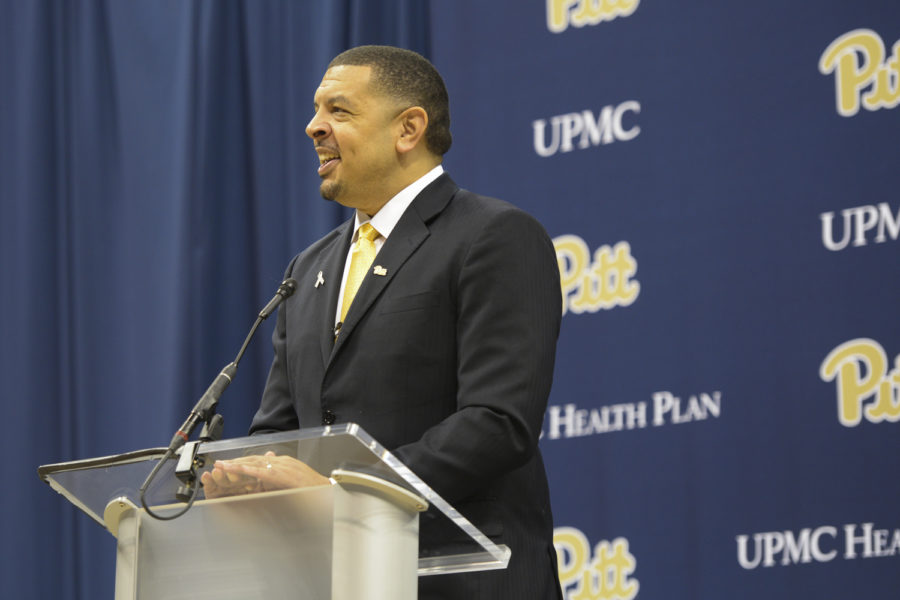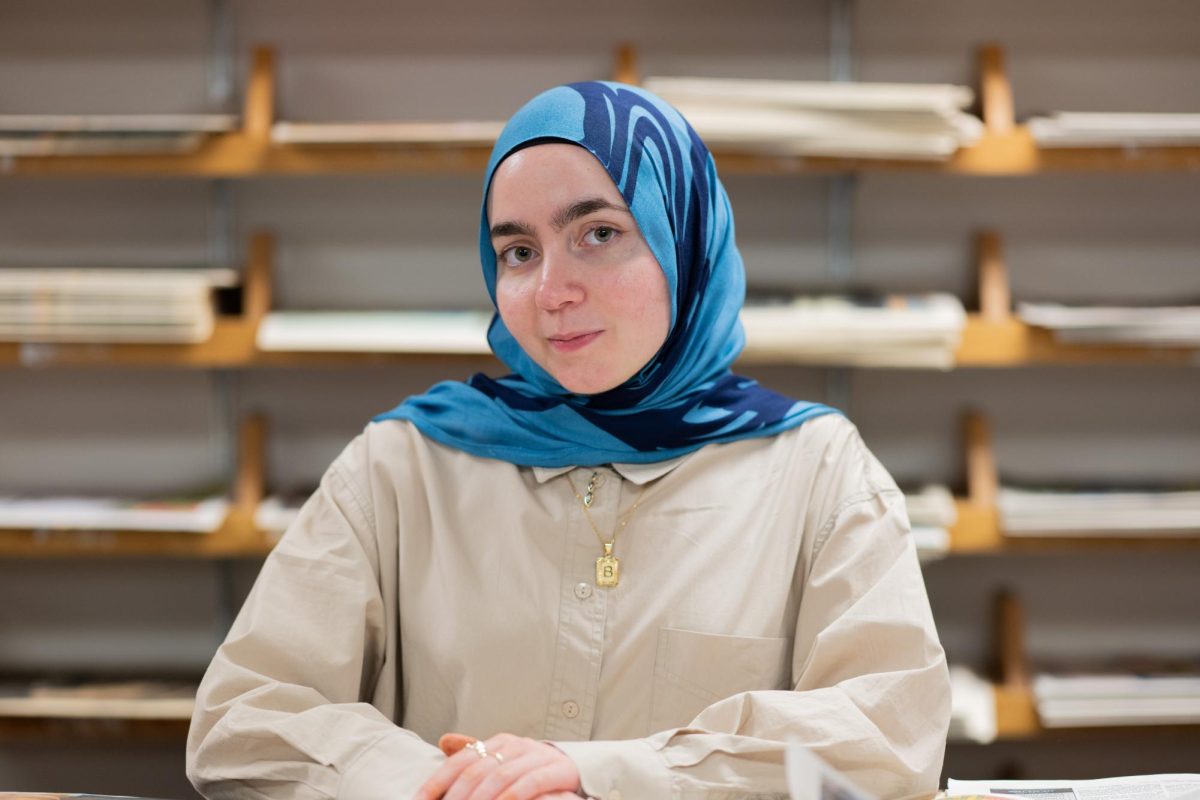Panthers to push the pace under new coach Capel
Makenzie Rodrigues | Contributing Editor
Head coach Jeff Capel spoke about his previous qualifications and excitement to begin working with the men’s basketball team in the 2018-19 season at a press conference in March.
November 5, 2018
When Pitt hired Jeff Capel as the new head coach of its men’s basketball team last March, you would have been hard-pressed to find anyone at Pitt, from the fans to former players, who disapproved of the hire. The least enthusiastic reaction probably came from former Pitt forward Gilbert Brown, who described the new hire as “not bad.”
His ability as a recruiter undoubtedly drives his reputation as a coach, but if fans questioned anything, it was whether or not he will turn high-powered recruits into wins.
Capel isn’t unfamiliar with leading a program. At 27 years old, Capel was the youngest head coach in Division I basketball when he got promoted to the head coaching job at Virginia Commonwealth University in 2002. Capel led one of VCU’s most successful runs ever in his four years in Richmond. The Rams recorded a school record for wins (74) and the highest winning percentage (.658) of any program in the state of Virginia during his tenure.
He made his first move to a Power Five conference when he accepted the head coaching job at Oklahoma in 2006. He was put at a disadvantage, as three players who had made up a top five recruiting class under the previous coach departed. Capel’s first two years were underwhelming, even with the signing of McDonald’s All-American and future NBA star Blake Griffin.
Capel really made noise in his third year as a head coach. The Sooners went 30-6 and earned a No. 2 seed in the NCAA tournament before falling in the Elite Eight to North Carolina.
Things went downhill at Oklahoma during Capel’s remaining two seasons in Norman. The Sooners won a combined 25 games — 13 of which were vacated from the 2010 season due to the use of an ineligible player. Attendance dropped, players left the program and an NCAA investigation regarding the recruiting tactics of former assistant coach Oronde Taliaferro hung a dark cloud over the program.
While Capel was not implicated in the investigation, he couldn’t overcome the negativity surrounding his program. After consecutive losing seasons and a lack of promising recruits, the administration decided to move on and fully invest in a rebuild.
Capel then found himself at Duke, as an assistant for his former head coach Mike Krzyzewski. In his five years there, he became Coach K’s primary assistant and had some experience filling in at the head coaching spot when Coach K was sick.
However, trying to revive a Pitt program that essentially hit rock bottom is a completely different animal than coaching at Duke. Capel will have to be a complete coach — recruiting, drawing up the X’s and O’s and energizing the fan base — before Pitt can return to the kind of consistent success it enjoyed during the last decade.
As far as actual in-game coaching goes, Capel will attempt to combine the old with the new, honoring the style that made Pitt successful in the past while keeping pace with basketball’s evolving trends.
In an Oct. 30 press conference, Capel emphasized something that has been tenet of Pitt basketball since before the turn of the century — toughness.
“There are things I hope we do well,” Capel said, “which are play hard and compete and fight every second we are out there, every guy doing that together … there has to be a toughness about us every time we are out there.”
Toughness is typically a cliche of coach-speak, but for the Panthers it will need to become a hallmark if they are to compete this season, especially in the ACC. Pitt’s roster is undersized and will often be overmatched from a talent perspective, so they will need to be cohesive, gritty and smart. Team rebounding and team defense — in addition to forcing and capitalizing on turnovers — will be key.
For what Pitt lacks in experience, talent and size, it can make up for with its athleticism. Pitt has multiple newcomers who will really turn heads with their speed and ability to play above the rim — an aspect that the 2017 squad lacked.
Capel and his new coaching staff stressed strength and stamina, so they began to push the players harder in practice and workouts. Senior guard Jared Wilson-Frame is a perfect example of the impact that the new coaching staff has made, losing 26 pounds since last spring. His teammate, sophomore Peace Ilegomah, has lost 37 pounds.
“We are not a big team,” said Capel, “so a lot of times the other team we are playing against can be and will be bigger than us. So we have to figure out how to use quickness, intelligence, togetherness and toughness to our advantage.”
Capel wants his Pitt teams to play in the same mold of his teams at Oklahoma — force turnovers, get out in transition and play fast. The Panthers definitely have the speed and explosiveness they need, whether it comes naturally from first-year players Xavier Johnson and Trey McGowens or is developed by guys like Ilegomah and Wilson-Frame.
It’s up to coach Capel to utilize and build upon his roster’s athleticism. The Panthers’ exhibition game against Pitt-Johnstown was an early indicator — albeit against a Division II opponent — that they can succeed playing that way. The Panthers took 25 3-pointers, already outpacing their season average from a year ago, which ranked 88th in the country. They also forced 21 turnovers and scored 20 of their 78 points off of those turnovers.
Early returns show promise for coach Capel and for Pitt basketball, but the real results have yet to be seen. This team has a lot to prove — and while most of Capel’s public comments seem like nothing more than preseason coach-speak, they show how things will look on the court for Pitt in 2018.








